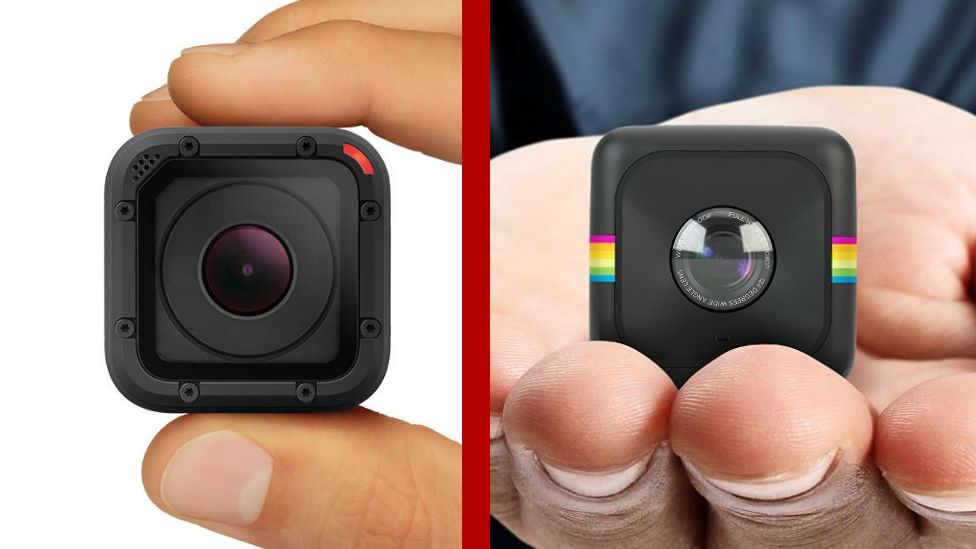GoPro sued by Polaroid camera maker
- Published

GoPro is being sued by the producer of a rival camera over the design of its latest cube-shaped device.
C&A Marketing, which produces Polaroid cameras, said GoPro had infringed a US design patent it was granted in May.
Both companies have recently released compact, cube-shaped video cameras.
One expert told the BBC that GoPro may have to find similar designs in the public domain that predated Polaroid's patent to defend its product.
"Design patents are a series of drawings with a very brief description of what the pictures show," said chartered patent attorney Rob Jackson.
"It's all about protecting an aesthetic. Just because a design is simple doesn't mean it can't be protected. C&A Marketing will be trying to show that GoPro's product is too similar to its design.
"GoPro's lawyers will no doubt be looking for prior art that is out there in the public domain, to show that the Polaroid camera was not a new design."
The Polaroid Cube was released in 2014, months before rival GoPro Session. Both cameras have a lens on one face, with a record button on another.
C&A Marketing has asked the court for damages including all of GoPro's profit from the Session camera.
In a statement, C&A Marketing said: "We invested considerable resources in the design and development of a unique product with the Polaroid Cube.
"It has rounded edges, a slightly recessed lens and a single button on top - all important design elements, all used as well by GoPro for its Hero 4 Session."
GoPro said: "In addition to developing the Hero 4 Session long before a competitor announced its product or filed for a patent, the Hero 4 does not infringe the competitor's patent because its overall design is not similar and does not include the specific features that are required by the competitor's patent."
- Published9 October 2014
- Published8 October 2014